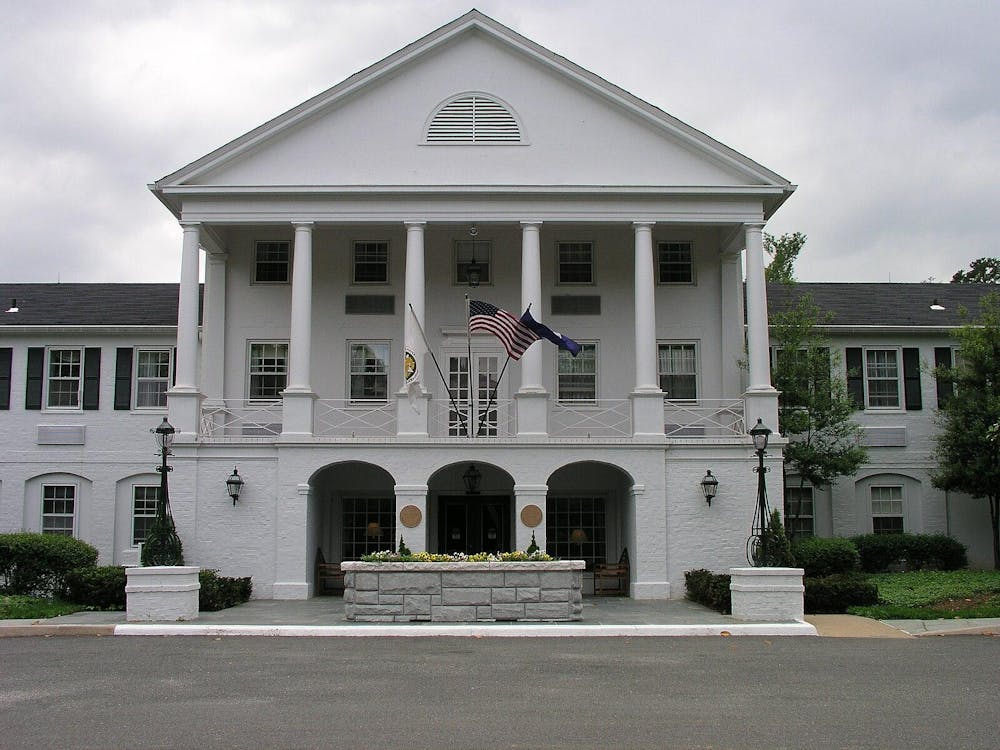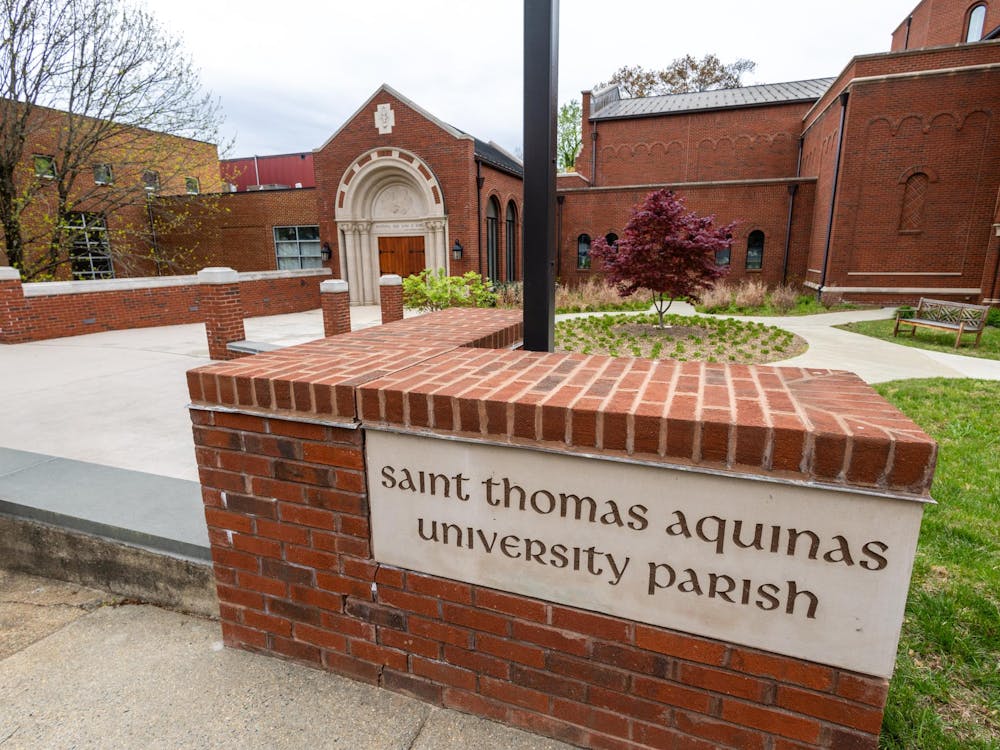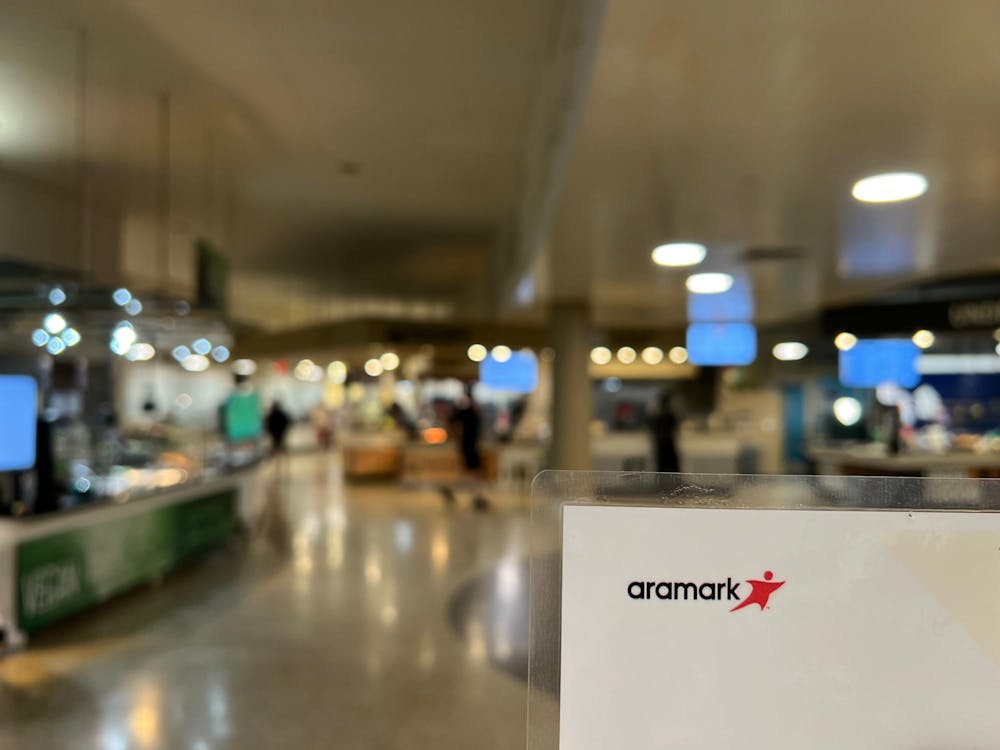As the movement toward curriculum internationalization continues to gain supporters at the University and other institutions, another educational movement encouraging a return to a traditional education has begun to take root.
An October 2007 Student Council report paved the way for recent developments in curriculum internationalization, including steps closer to the first-ever student-initiated major in global development. While this attempt to expand course offerings and academic emphasis on topics outside of traditional Western thought has gained ground, some academics view it as a move toward further academic fragmentation with a distinctly liberal political bias. Peter Wood, executive director of the National Association for Scholars, said those within the traditionalist academic movement believe education at universities is becoming overspecialized with a myopic focus on identifying different groups based on race, ethnicity and gender. As a result, Wood said, traditionalists assert that students are learning their professors’ interpretations of texts and events, as opposed to examining those elements by themselves.
Traditional values in education
Wood said the drive to be politically correct when identifying groups by race, age or gender has taken over college communities, giving students a liberally biased education in humanities. Philosophy Prof. Robert Koons at the University of Texas explained that “political correctness is a by-product of [the] fragmentation and overspecialization of education,” adding that this fragmentation allows professors to insert their personal opinions into lectures.
Wood, Koons and University Politics Prof. James Ceaser shared the view that the main goal of bringing back a more traditional curriculum to universities would be to separate political ideology from education and give students the opportunity to examine important texts that are the foundation for the community in which they live.
“Movement toward identity politics has essentially become a sixth doctrine” in education, Wood said, noting it “influences matters from who is admitted to college to what can be taught, what can be said or what can not be said.”
The goal of a more traditional education, Wood said, would be to acknowledge that there are a limited number of key works and schools of thought that are central to understanding the world. In the past, Koons said, a specific set of texts and readings dictated liberal arts curriculum. Now, he said, the specialization of so many different fields of study have led to the fragmentation of that canon.
According to fourth-year College student Kendall Wallace, however, this narrow focus can come at the expense of a diverse global education.
“We grew up on American values — if you want to take a class on that, those classes are already available in [sociology,] politics and even economics,” Wallace said, adding that in an increasingly globalized economy, an internationalized education will be more important. “Our economy, our politics, our thinking has become more global. It’s time to embrace that.”
Ceaser noted that the traditionalist approach is not meant to be political, but a strict study of important texts.
“It is an effort to reconnect to a more core understanding of what the first years of a liberal arts education should be,” he said.
Ceaser added that PLAP 225, “American Political Tradition,” serves to “reconnect a generation of American students to the core ideas of the American political tradition.”
Ceaser said students in the course study classic Western political thinkers and actors such as Locke and the founders of the United States in order to focus on the “importance of the civic component in one’s education for the community in which we live.”
Since American society is where most students in the United States live, participate, vote and consume, Ceaser said, it is important that students learn about the fundamental values that create American society.
Wallace, meanwhile, said the importance of general curriculum internationalization rests in the fact that as technology develops and the world economy changes, people will be interacting with people from other nations more frequently.
“This world is becoming more globalized whether we like it or not,” Wallace said. “It’s almost irresponsible to not learn about foreign cultures or the way foreign people think as our world becomes more internationalized.”
Koons said, however, that traditionalist courses are meant to promote students’ thoughts about a broader sense of what it means to be human in general. He added that these courses are meant to examine “questions about who we are, what’s our place in the universe, what are our duties and how does that relate to our individual fulfillment.”
Globalizing education
A movement at the University to move toward an internationalized curriculum began in fall 2006, when University graduate Ryan McElveen, then Student Council diversity chair, created the Student Council Committee on Curriculum Internationalization. McElveen said the committee conducted a survey of University students to measure the demand for an internationalized curriculum and released a report in October 2007. According to the committee report, the survey found that 93 percent of University students viewed global perspectives as important in college education. It also found that 75 percent of those students were not confident in their education relating to regions other than Europe and North America.
McElveen said an insufficient non-Western education may contribute to international students feeling less accepted by the University community.
“Students from different backgrounds come to the University and they’re not able to take classes in subjects that are rooted in their heritage,” he said. “They’ll feel as if they aren’t accepted in the institution.”
Furthermore, McElveen said, the internationalization of curricula is a true part of Jeffersonian culture and educational theory.
This is “rooted in Jeffersonian culture,” McElveen said, “He was a big proponent of examining all parts of the world.”
Examining all parts of the world is exactly the goal of a student-initiated major spearheaded by Wallace, who has worked with classmates since October 2006 to create a global development major in the College. The proposed major would be comprised of classes from a variety of liberal arts departments, including anthropology, sociology, politics and economics, Wallace said, and would be a rigorous two-year program during students’ third and fourth years.
Third-year students in the major, she explained, would have a major-specific seminar in the fall semester and a focus on specific global-development based case studies in the spring semester. Fourth-year students would be required to write a thesis.
“We looked at other programs at other schools, and looked at U.Va.’s programs,” Wallace said, “And from that we formed a proposal for a structured program similar to [Political and Social Thought] and [Political Philosophy, Policy and Law].”
Though the structure of the program has already been developed, the major has not been created yet because of a lack of funding for faculty positions, Wallace said. The students who have been a part of this initiative, however, are currently taking a course they planned with some faculty members that may eventually become the third-year seminar within the proposed major.
The course, Theories of Global Development, is cross-listed in the economics and sociology departments. There are four professors teaching the class: Economics Prof. Bruce Reynolds, Anthropology Prof. Richard Handler, Sociology Prof. Rae Blumberg, and Politics Prof. Robert Fatton.
Reynolds said the course’s semester is divided into four six-class sessions, with each professor teaching one six-class session, while the other three observe.
The goal of the course’s structure is to expose students to the idea of examining the different components of global development from an interdisciplinary perspective, Reynolds said.
“It’s as if each of the faculty members asked the question, ‘What is the most important thing I have to teach about global development and theories of global development?’” he said. “There’s an enormous difference of approach ... I am stunned and delighted at the interdisciplinary work.”
Other schools at the University are also looking at ways to internationalize their curricula. The Nursing School now offers a Global Health program, and the Engineering School is working on globalizing its program as well, Wallace said. The Engineering School is expanding study abroad options, she said, including initiatives to design and build water purification projects in South Africa.
Traditionalism and globalism: friends or foes?
Ceaser said traditionalism and internationalism do not need to be competing movements in education. The traditionalist approach, Ceaser said, can serve as the foundation for a more modern way of globalized thinking.
“Where the idea of globalization came from is fully part of the ideas that are considered in a classical education,” Ceaser said.
McElveen said the two movements can serve to balance to one another.
“I don’t think that [The American Political Tradition] course in particular, or any courses like it, are necessarily against internationalization, but they can’t exist alone,” McElveen said.
Reynolds also said he views the two movements as a way to balance and provide a well-rounded education.
“It’s very healthy for students to be exposed to different value systems,” Reynolds said, adding that through this exploration “our own value system, the one that we bring with us out of our culture, will become clear to us.”
Wallace, on the other hand, said she thinks that the rise of traditionalist education could potentially harm internationalization efforts.
“Honestly, I think it’s unnecessary,” she said. “The reason that the internationalist movement ... started is because we had too many American-based courses — that’s why we have an American Studies major.”
Wallace explained, though, that she is not entirely opposed to the idea of classically structured courses.
“The only reason ... I would be opposed to this going back to traditionalist values is if it takes away from [internationalization],” she said. “If we become more introspective because of this movement, then I think it’s a problem.”
Ceaser said, however, the most important thing to consider in both of these movements is the need to avoid proselytizing political ideology and biases.
“Ideology has no place in the university education,” he said.
—Samantha Koon contributed to this article.






